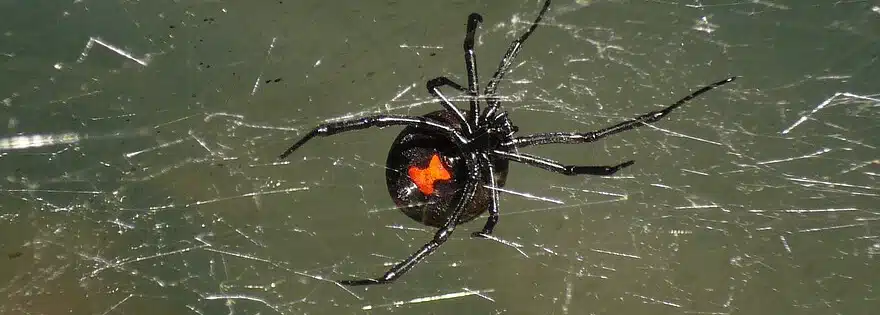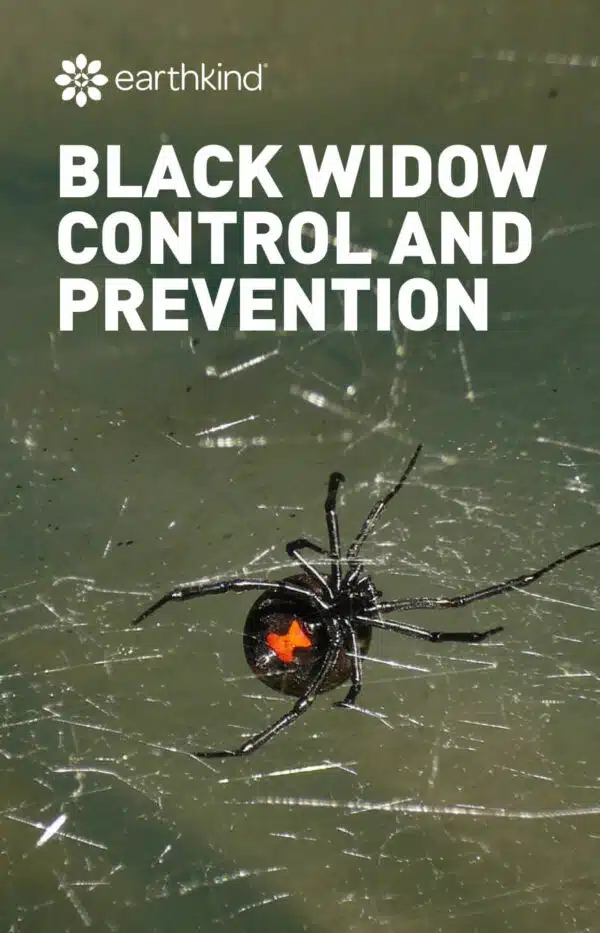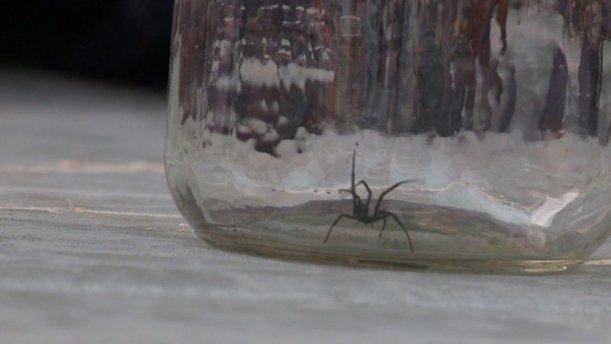Black Widow Control and Prevention
By: EarthKind
The black widow spider (scientifically named Latrodectus) is notorious for being dangerous. The female’s poisonous bite and reputation for killing and eating her mate serve not only as a health and safety concern, but also makes for an interesting relationship dynamic.
Their venom is 15 times more toxic than a prairie rattlesnake’s venom, and a black widow spider bite can cause fever, increased blood pressure, and headaches. Bites can also result in death, particularly if young children, the elderly, or people with compromised immune systems are bitten. However, the black widow is not an aggressive spider and will only bite if disturbed. If bitten, seek medical attention immediately.
Despite their fearsome reputation, this type of spider is an important part of our ecosystem. Like any spider, they feed off of other insects, making them beneficial pests to humans since they help with insect control. Black widows also have silk or webbing that is especially strong. There are possible commercial and medical uses for both their silk and venom.
Keep your home pest free with simple, effective solutions. Subscribe and save!
Black Widow Spider Facts
Think you’ve spotted one of these spiders in your basement, garage, or somewhere else around your home? Knowing a few facts about black widows may help in determining if this is the species you’re seeing in your house.
- Female black widows have shiny black bodies and usually have a red hourglass shape on their underside.
- Black widows are small, about the size of a paperclip.
- They are not dangerous to humans until they reach adulthood.
- They inhabit warmer areas, such as the desert and southern regions of North America.
- Their spider webs lack shape and form and are erratic in appearance.
- They are nocturnal.
- Females may live for over a year, while males typically only live for a month or two.
- Male black widow spiders don’t bite.
- Females build spherical papery sacs and store hundreds of eggs within them. Each egg sac typically contains 200 to 300 yellowish-white eggs and is usually placed in dark, sheltered areas like entryways or dark crevices of a room. Once the eggs hatch, the young spiders quickly disperse via wind or gravity to look for food nearby.
Natural Black Widow Control and Prevention
Although these arachnids are impressive in their own right, they are not the kind of creature you want to unknowingly cross or have in your home. One Utah neighborhood experienced a surge in black widow sightings due to rainier-than-usual conditions. The summer rain created ideal conditions for insect populations, which resulted in greater spider populations due to the increased food supply.
To avoid black widow spider infestations, as well as avoid the use of poison for pest control, prevention is the best medicine. Knowing what types of habitats these creatures favor and taking steps to make your home less favorable to them can help.
Spiders like quiet, undisturbed hiding places like garages, attics, basements, closets, crawlspaces, and storage areas. Keep these areas clean and clutter-free.
They tend to make spider webs in corners, along the underside of shelves, or outdoors in firewood piles or rock clusters. Keep wood and rock piles as far away from your home as possible. They may attempt to move indoors as the weather cools.
Be sure to seal off any cracks or small openings where they may crawl into the house. Install door sweeps and repair window screens that may also work as entrances.
If you spot any webs or spider egg sacs, they should carefully be removed. Female black widow spiders are protective of their egg sacs and may be more likely to bite, so wear gloves and be cautious when searching for and removing their webs and egg sacs.
Keeping your home free of other insects will also help control and get rid of black widow spiders because there will be less food available for them. EarthKind’s Stay Away line includes botanical spider and insect deterrents that will help keep these pests away from your home. Using a mix of essential oils, these pouches release a smell that’s pleasant to humans but will keep pests away from the treated areas.
For more spider control and pest prevention tips, visit our article exploring 21 ways to get rid of spiders.









